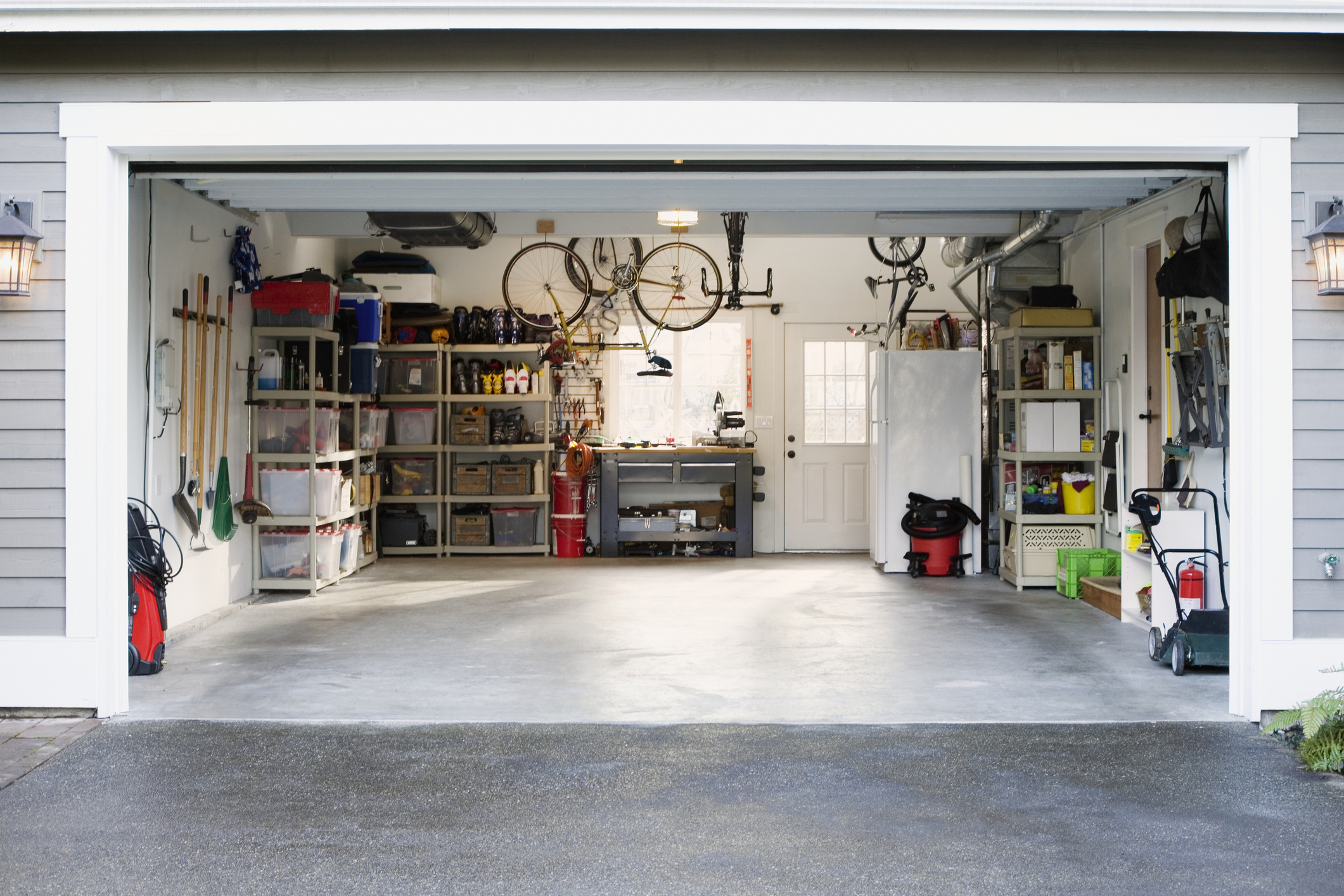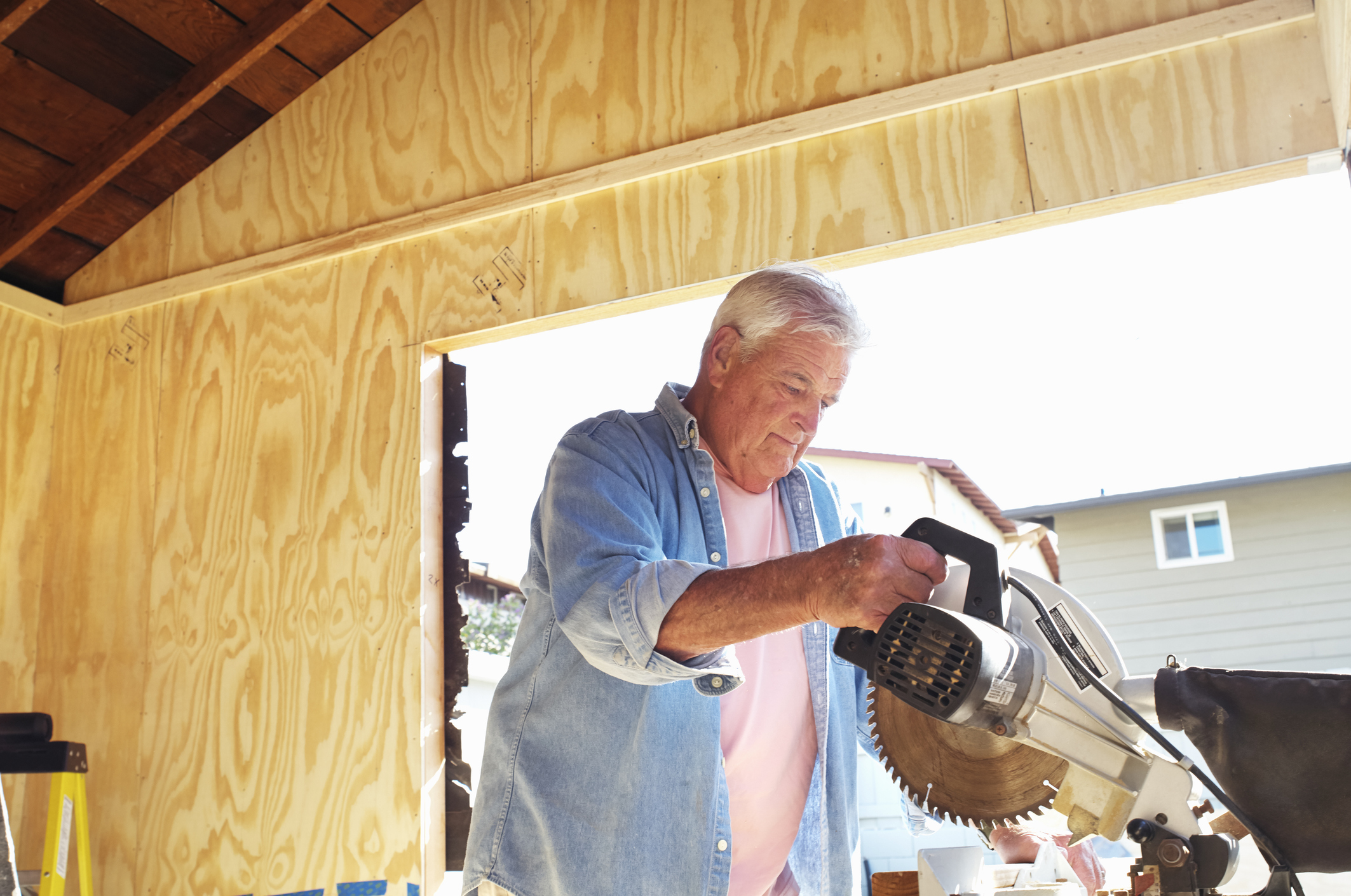

We may earn revenue from the products available on this page and participate in affiliate programs. Learn More ›
If you’re an enthusiastic home DIYer, your arsenal likely includes a variety of power tools that make your projects easier and more professional-looking. From cordless saws and nail guns to leaf blowers and drill/drivers, these convenient tools help you accomplish tasks more efficiently, with greater precision, and with less physical effort than traditional manual tools.
The convenience of using such tools comes with responsibility, however. Cordless technology relies on rechargeable lithium-ion batteries, and properly storing and caring for these batteries is critical to ensuring they continue to function properly, have the longest lifespan possible, and do not fail prematurely due to improper handling.
As temperatures climb during summer months, your power tool batteries face significant risks. High heat can dramatically reduce battery life and potentially create safety hazards. Storing power tool batteries in a garage during hot summer days can expose them to temperatures that can degrade them.
We consulted with a battery expert at DeWalt to hear about the best practices for maintaining power tool batteries during hot temperatures that can help save you money and extend the life of your investment.
It is not a good idea to store batteries in a hot garage.
The bottom line is that power tool batteries should not be stored in a hot or humid garage, according to Brad Palmatary, DeWalt group product manager, batteries. “A controlled, cool, and dry environment is ideal for battery storage to prevent any issues,” he says. If a garage is the only possible location to store your power tools and batteries, then consider using a climate-controlled storage area or a battery storage case that offers some insulation from temperature extremes.

Hot temperatures can affect the effectiveness and lifespan of batteries.
There are several reasons why it’s not advisable to store power tool batteries in a hot area. When power tool batteries are exposed to extreme heat, such as in a toasty garage environment, they can become damaged. “Extreme heat can cause lithium-ion batteries to degrade faster, reducing their lifespan and efficiency,” explains Palmatary. This occurs when high temperatures increase the internal pressure of the battery, potentially causing it to leak, swell, or even experience thermal runaway, a dangerous phenomenon where a battery cell enters an uncontrollable, self-heating state.
Extreme heat could trigger a major safety concern.
Storing power tool batteries in a hot location can indeed cause them to catch fire or explode, leading to a serious safety issue. Extreme heat increases the likelihood of thermal runaway, which can lead to the release of flammable gases. These gases might ignite, resulting in a fire, says Palmatary.
Consider these tips when storing power tool batteries at home.
Palmatary suggests keeping the following important guidelines in mind:
- Store power tool batteries in a cool, dry place away from direct sunlight and excessive heat sources.
- Store lithium-ion batteries between 68 degrees Fahrenheit and 77 degrees Fahrenheit.
- Always avoid storing power tool batteries above 104 degrees Fahrenheit to prevent damage, as extreme temperatures can cause thermal decomposition of the battery components.
- Avoid storing batteries in attics, garages, or vehicles where temperatures can soar, especially in the warmer months.
- To maintain battery integrity, use a climate-controlled environment, if possible, such as a basement, air-conditioned room, or interior closet.
- Avoid immersing power tool batteries in water or other liquids, as high humidity or exposure to rain can be harmful. Moisture can lead to corrosion of the battery terminals and other components, potentially causing short circuits or other failures. Excessive humidity can promote corrosion or short circuits within the battery.

Monitor power tools when using them in hot weather.
Should you be concerned about using power tools in the hot temperatures and strong sun? In general, it is fine to use power tools in direct sunlight. However, on extremely hot days, such as in the range of 104 degrees Fahrenheit to 113 degrees Fahrenheit, it’s a good idea to monitor the tools and batteries to ensure they don’t overheat, says Palmatary. “Proper ventilation and occasional breaks in shaded areas can help maintain optimal performance,” he says. “It is advisable for users to stay in the shade and avoid direct sunlight when working with power tools to prevent the tools and batteries from overheating.”
Additionally, make sure there is adequate ventilation to help dissipate heat and maintain a stable environment. This can help reduce the risk of overheating the power tools and causing thermal runaway. “Proper ventilation can keep tools and batteries cooler, so when using power tools, ensure there is adequate airflow around the tool to prevent overheating,” recommends Palmatary.
Follow these tips to properly store power tool batteries in the summer.
Palmatary also provided the following tips for storing power tool batteries in the hot summer season:
- Read and follow all manuals and on-product warnings prior to using or storing these products.
- Ensure batteries are not fully charged during storage.
- Keep batteries separate from combustible materials and provide adequate ventilation to avoid heat buildup.
- Regularly inspect batteries for any signs of damage, wear, or swelling, and dispose of them properly if any issues are found.
- Charge batteries at room temperature and avoid charging them immediately after use when they might be hot.
